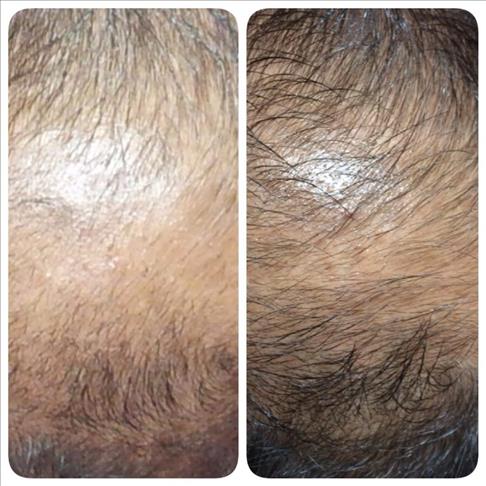
By Bahattin Gonultas and Andrew Jay Rosenbaum
ANKARA
Beauty tips from a fashion guru in a recently published article in a top international style magazine have helped highlight one of Turkey's hidden booming industries - hair transplants.
"Know a man who needs to up his facial hair game? Send him to Turkey," the guru wrote in Allure in March.
More than 15,000 people now flock to Turkey from all over the world for hair transplants, an industry that is now worth close to $250 million annually and part of a global hair transplant industry worth about $1 billion, according to the International Society of Hair Restoration Surgery.
In Istanbul, there are now about 250 clinics or private practices that compete to cover bald pates or to give mustaches to men who seek a certain masculine image.
Why do they choose Turkey?
“Quality is high, and the cost is relatively low,” according to Muharrem Cetinoglu for Konhair SAC Ekimi, a chain of hair transplant centers based in Istanbul.
Cheaper than Greece
Feyman Duygu Oktar, founder of the Ankara Hair Center, said: "Nowadays, hair transplants have become more popular than in previous years, thanks to higher quality which provides a natural appearance with transparent roots.
"Turkey has achieved a high level of technological advancement in the field."
And, compared with many other countries, about 5,000 Turkish liras ($1,929) is a relatively low price.
The cost is a fraction of what one would pay in the U.S. or the U.K., where the cost runs as high as $25,000, and even cheaper than in Greece, which is one of Turkey’s top competitors in the sector.
Oktar said most customers come from Europe and the Middle East.
Evolved industry
He said: "Turkey’s location, only a 2-3 hour flight from major cities in Europe and the Middle East - and also its evolved holiday industry - are advantages that are bringing in more patients.
"Another advantage is that Turkey does not apply a visa to more than 70 countries, and people from more than 110 countries can reach to the country on a non-stop ticket."
“Recently, more demand is coming from Saudi Arabia due to cultural appropriateness," he said.
Turkish television shows have also popularized a specific masculine image that has become popular in the Gulf states and in the Kingdom.
Ahmed, who did not want to give his surname and came from Saudi Arabia, said that he had contacted a doctor in Turkey by email and sent his picture for initial assessment.
Istanbul 'enjoyable'
Many foreign hair transplant patients contact their doctors in Turkey via WhatsApp or other social media.
“I preferred Turkey for medical treatments due to lower-cost, high quality medical care after personal referrals from my mate who had teeth treatments in Turkey. I am having a hair transplant, and I am enjoying Istanbul with historical sites and shopping as well,” Ahmed said.
The quality of Turkish health care has improved markedly over the past decade, including that of hair transplants, according to the European Society of Hair Restoration.
The society cites state-of-the-art medical centers which use modern equipment.
What’s more, many of the doctors in Turkey who perform the transplants have now been in the practice for years and so have considerable experience.
Top destination
Turks spent about $1,000 per capita on healthcare in 2014, up from about $300 in 2004.
The result has been an overall improvement in the quality of care, and Turkey is already among the top 10 healthcare destinations globally, according to Deloitte’s 2014 Global Life Sciences Outlook.
The country’s health tourism strategy includes medical, spa and healthcare for elderly and disabled people, and foreign patients are also seeking medical care in dentistry, optometry, orthop
edics and plastic surgery.
There are more than 1,600 thermal springs in the country for those who seek alternative methods of treatment.
Anadolu Agency website contains only a portion of the news stories offered to subscribers in the AA News Broadcasting System (HAS), and in summarized form. Please contact us for subscription options.

